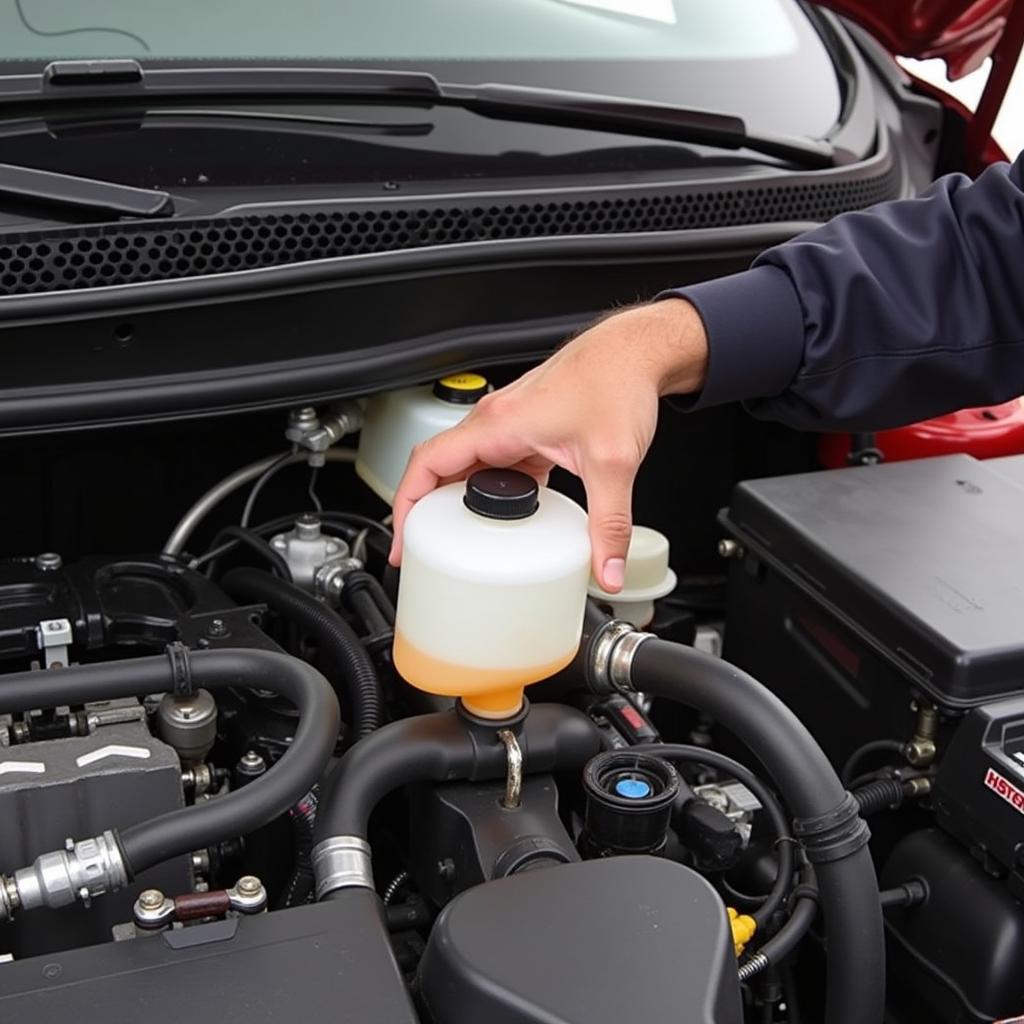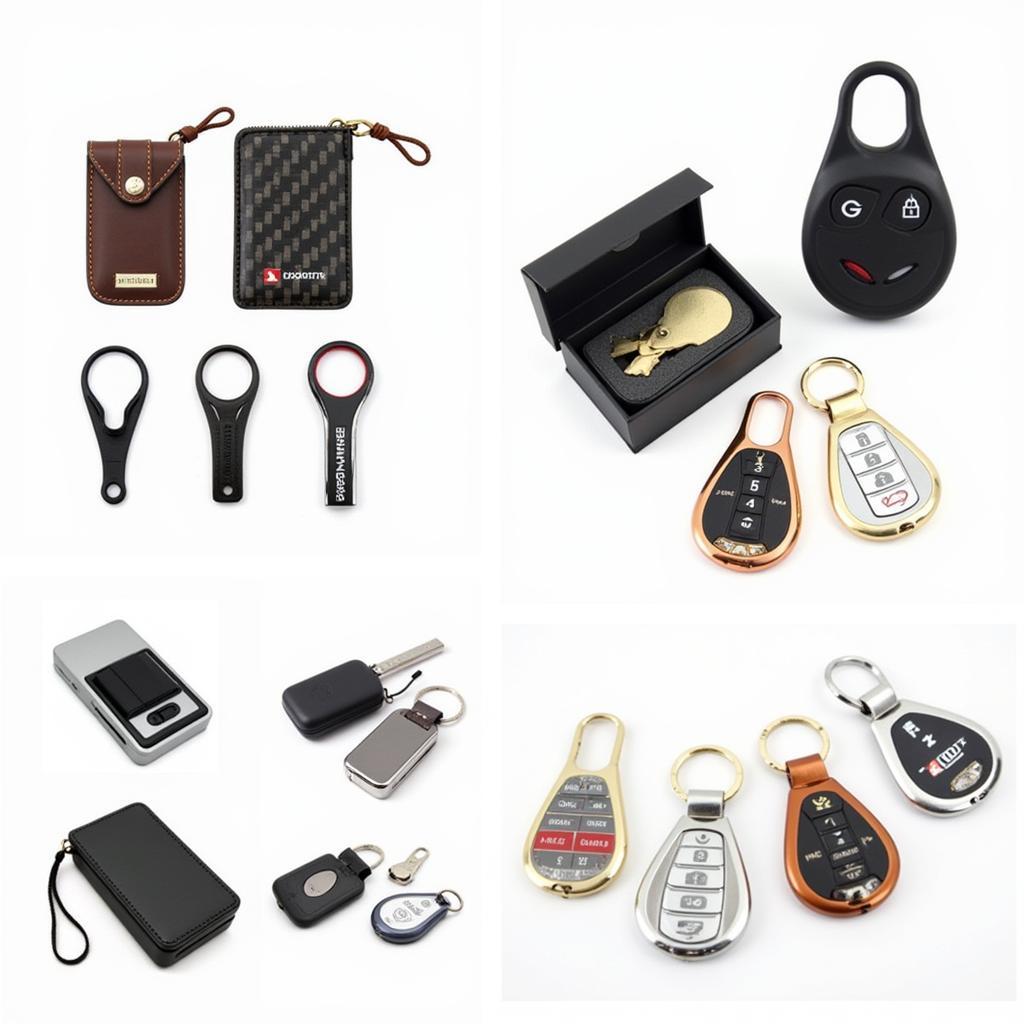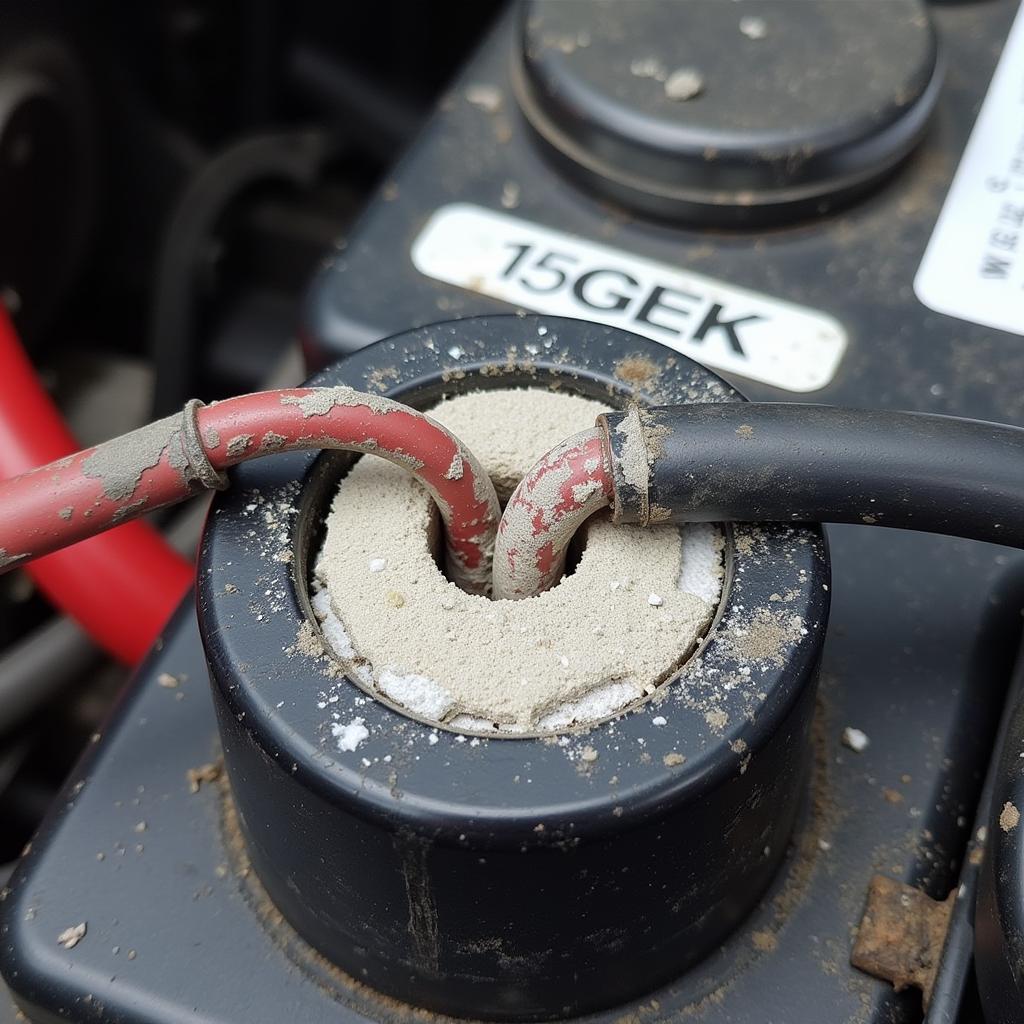The dreaded “Check Brake System” warning on your Honda Civic dashboard can be alarming. This guide will help you understand what triggers this warning, diagnose the problem, and explore solutions, from simple DIY fixes to more complex repairs that might require professional assistance. We’ll also cover preventative maintenance to help you avoid future brake system issues. honda civic low brake fluid warning
Understanding the Honda Civic Brake Warning Light
The “Check Brake System” warning light is a crucial part of your Honda Civic’s safety system. It illuminates when the onboard computer detects a potential issue with your braking system. While it can sometimes be a false alarm, more often than not, it signals a problem that needs immediate attention. Ignoring this warning can compromise your safety and lead to costly repairs down the road.
Common Causes of the “Check Brake System” Warning
Several factors can trigger the “Check Brake System” warning in your Honda Civic. These include:
- Low Brake Fluid: This is the most common culprit. Low brake fluid can be caused by leaks, worn brake pads, or simply needing a top-up.
- Faulty Brake Light Switch: The brake light switch activates your brake lights when you press the brake pedal. A malfunctioning switch can trigger the warning light.
- Worn Brake Pads: As your brake pads wear down, the brake fluid level drops, potentially activating the warning.
- ABS Issues: Problems with the Anti-lock Braking System (ABS), such as a faulty sensor or module, can also trigger the warning light.
- Parking Brake Engaged: Sometimes, the simplest explanation is the correct one. Make sure your parking brake isn’t engaged.
 Checking Honda Civic Brake Fluid Reservoir
Checking Honda Civic Brake Fluid Reservoir
Diagnosing the Problem
Identifying the specific cause of the warning light requires some investigation. Here’s a step-by-step guide to help you diagnose the issue:
- Check the Parking Brake: Ensure the parking brake is fully disengaged.
- Inspect Brake Fluid Level: Locate the brake fluid reservoir under the hood and check the fluid level. It should be between the minimum and maximum marks.
- Check for Leaks: Inspect the brake lines, calipers, and wheel cylinders for any signs of fluid leaks.
- Test Brake Lights: Have someone observe the brake lights while you press the brake pedal. If they don’t illuminate, the brake light switch might be faulty.
honda civic brake warning light stays on
What if the Warning Light Stays On?
If the warning light persists even after checking the above, it’s time to seek professional help. A qualified mechanic can use diagnostic tools to pinpoint the exact problem and recommend the necessary repairs.
“Regular brake system checks are essential for maintaining safety and preventing costly repairs,” says John Miller, a seasoned automotive technician with over 20 years of experience. “Don’t ignore warning signs, no matter how small they seem.”
Fixing Common Brake System Issues
Some brake system issues can be resolved with simple DIY fixes, while others require professional attention.
- Low Brake Fluid: Topping off the brake fluid is a straightforward process. However, if you find yourself frequently adding brake fluid, it indicates a leak that needs professional attention.
- Faulty Brake Light Switch: Replacing the brake light switch is relatively easy and can be done at home with basic tools.
foot parking brake warning light switch
When to Seek Professional Help
For more complex issues like ABS problems or brake line leaks, it’s best to consult a qualified mechanic. Attempting these repairs yourself can be dangerous and potentially worsen the problem.
“Addressing brake problems promptly is crucial for safe driving,” advises Sarah Johnson, a certified automotive instructor. “A small issue can quickly escalate into a major safety hazard if left unchecked.”
Preventing Future Brake System Issues
Regular maintenance is key to preventing future brake system problems. This includes:
- Regular Brake Inspections: Have your brakes inspected at least once a year or as recommended in your Honda Civic’s owner’s manual.
- Brake Fluid Flushes: Flush your brake fluid every 2-3 years to prevent corrosion and maintain optimal braking performance.
- Timely Brake Pad Replacement: Replace your brake pads before they wear down completely.
dashboard warning lights brake
Conclusion
The “honda civic check brake system warning” should never be ignored. By understanding the potential causes, diagnosing the problem, and taking appropriate action, you can ensure your Honda Civic’s braking system is in optimal condition, keeping you and your passengers safe on the road. Don’t hesitate to seek professional help when needed.


